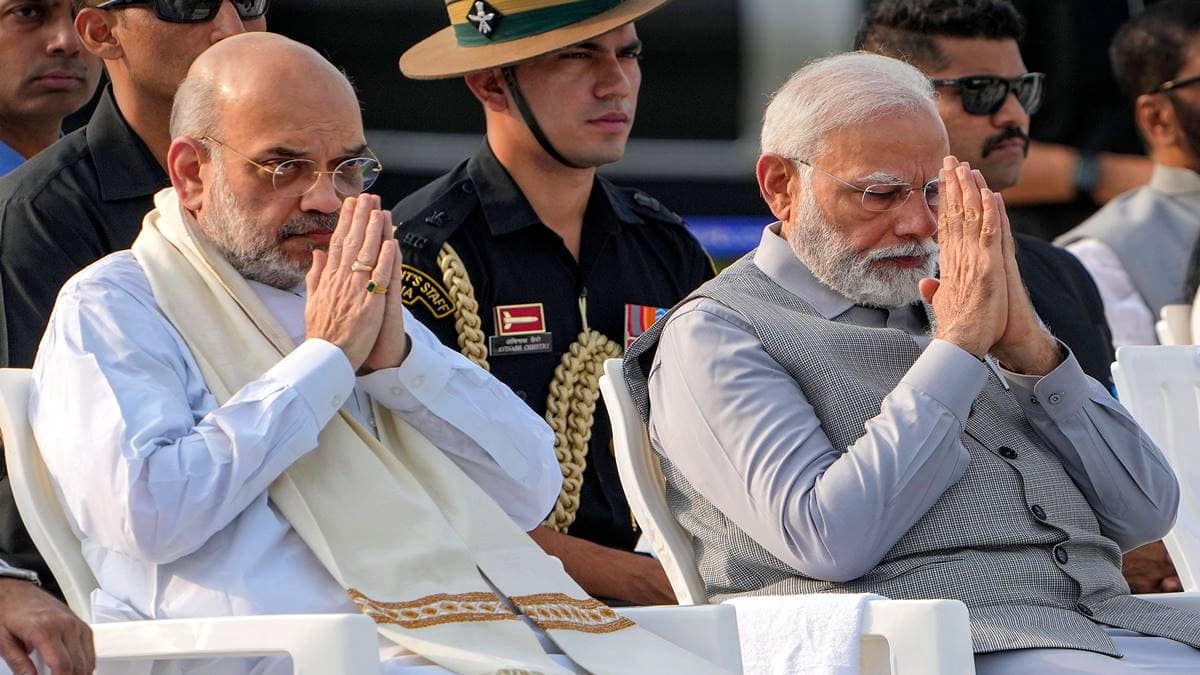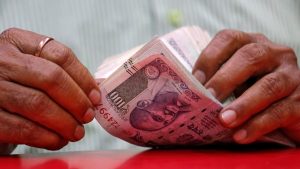Eye on 2024: The Modi-Shah game plan behind change of guard in key heartland states
The Bharatiya Janata Party has effected a major overhaul in ranks with the announcement of three largely unknown faces as its choice for chief ministers in the Hindi heartland states of Madhya Pradesh, Rajasthan and Chhattisgarh. The generational shift in the top leadership in the three key states in the Hindi heartland, a belt that the BJP under Prime Minister Narendra Modi draws its maximum strength, also marks the end of the Vajpayee-Advani era of the BJP.
With the phasing out of towering personalities like Shivraj Singh Chouhan, Vasundhara Raje and Raman Singh, the party now has no chief minister in any state where it is in power who had served before 2014. Perhaps the only recognisable face among the BJP’s three CM picks is Vishnu Deo Sai who has been appointed as the legislature party leader in Chhattisgarh. While the party chose old RSS hand and three-time MLA Mohan Yadav as the Madhya Pradesh CM, Vishnu Deo Sai served as a union minister and the president of the state’s party unit. In Rajasthan, the party announced first-time legislator Bhajanlal Sharma as the new CM of the state.
The ‘Naya BJP’
The selection of the new chief ministers in three key states has a clear stamp of the Modi-Shah strategy. While critics dismiss it as a bid by the central leadership to concentrate power within itself by appointing low-profile leaders and ensuring absolute obedience, the BJP claims the reality as quite the opposite. What is evident from the choices though is that the party has its sights set on the Lok Sabha elections in 2024.
The BJP has struck a fine balancing act in the phasing out of the old and bringing in the new. Mohan Yadav’s choice as the Madhya Pradesh CM signifies the party’s outreach to the Other Backward Classes community, a vote bank that PM Modi has cultivated through his welfare schemes. With Yadav’s appointment, the party has attempted to break into a territory that it has so far failed to breach – the powerful Yadav vote bank. While non-Yadav OBCs have rallied behind the BJP in past general elections, Yadavs have so far preferred to vote for other family parties such as RJD in Bihar and the SP in Uttar Pradesh. With the MP CM choice, the BJP has tried to woo Yadav voters into its fold and also sent them a signal that they do not need to bank on family parties alone.
Also Read: Election Results 2023: Why BJP’s Rajasthan win should leave Modi-Shah worried
Similarly, picking Vishnu Deo Sai, a leader from the ST community, is being seen as an attempt by the BJP to expand its tribal outreach that began with the appointment of Droupadi Murmu as the President. In Rajasthan, on the other hand, picking Bhajanlal Sharma as the Chief Minister signifies the party’s intent to keep its Brahmin and upper caste vote, its traditional support base, intact. The choice of Deputy CMs — Diya Kumari and Prem Chand Bairwa in Rajasthan, and Jagdish Devda and Rajendra Shukla in MP — also shows the BJP’s attempts to strike the right caste balance. While Diya Kumari is a Rajput face, Bairwa is a Dalit. Similarly, Devda is a Dalit face while Shukla is a Brahmin.
Negating Opposition’s caste card
A victory such as the one BJP has registered this time has set off speculation that the return of the Modi government for a third term in 2024 is imminent. However, when it comes to the BJP under Modi and Amit Shah, expect them to leave nothing to chance. Much of the campaign of the Opposition in the Hindi heartland — the Congress, in particular, centred around the issue of caste census. That promise, coupled with the hope of a possible overhaul of the reservation regime based on the findings of a caste-based survey, however, found few takers.
Also Read: BJP picks Bhajanlal Sharma as Rajasthan CM, Diya Kumari and Prem Chand Bairwa as Deputy CMs
The BJP was also repeatedly asked how many OBC chief ministers it has picked so far. The caste mix that the seven new appointees represent, however, takes the punch out of the bias that the Congress has tried to label the BJP with. Three of the seven appointees are upper caste, two are Dalits, one is an OBC and one is a tribal. The lethal mix also gives the BJP the ammo to counter the Opposition on its own dilemma on the caste census – something made evident by Karnataka Deputy CM DK Shivakumar’s Opposition to the release of the caste survey report cleared by Siddaramaiah.



